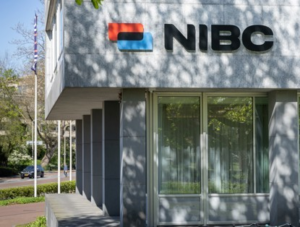Non-bank lending is showing considerable higher growth than bank lending over the years. The growth of the global fleet continues to be funded primarily from non-banking sources, such as leasing, alternative lending, export finance, private equity from Funds, public markets and investors, according to the latest analysis, for the 16th year running, by Petrofin Research of the global bank ship finance and the bank loan portfolios to global shipping.
Meanwhile, as the research shows, the top 40 banks’ lending to shipping in 2023 stands at $284.27bn, compared to $282.89bn in 2022. This reverses slightly the downward trend since 2011.
Ted Petropoulos, head of the Petrofin Research, notes Asian and Australian banks (APAC) show significant growth, especially their market share, which has increased from 43% to 45%.
In terms of actual exposure their portfolio amounts to $127.94bn compared to $120.83bn in 2022. The USA remains range bound, whilst Europe has shown a marginal decrease.
Among key findings of the analysis is that Europe still represents the biggest ship finance area at 50% of the top 40 banks, lending $141bn.
Greek banks showed a significant y-o-y growth of 13% from $13bn in 2022 to $15bn in 2023. Greece’s market share increased from 4.6% to 5.2%. French and Belgian and Other European banks portfolios also showed rises.
According to Petrofin Research, the total global bank lending of all banks, including local banks, is approaching $375bn, i.e. approximately 62% of all types of the global ship finance total down from 67%.
“We can provide a cautious, indicative figure for global ship finance, including all forms of lending – leasing, export finance and alternative providers – of approx. $600bn. Interesting to note that Clarkson’s estimate the global fleet value at $1.5trn,” highlighted Ted Petropoulos.
“It should be noted that non-bank lending is showing considerable higher growth than bank lending over the years.”
Japanese banks now figure more prominently in global ship finance holding 22% of the top 40 banks. This development is supported by the weak yen and rapid rise in Sale and Leaseback transactions (SLB).
“It should be noted that Japanese banks provide primarily loans to either Japanese owners or Japanese owned but international bareboat charterers,” added Mr. Petropoulos.
Poseidon Principles, a global framework for assessing and disclosing the climate alignment of financial institutions’ shipping portfolios, now incorporates 35 signatories, which represent $300bn in shipping finance.
ESG considerations and bank strategies continue to favour bank ship lending towards eco vessels.
“There is increasing evidence that sustainability has become more prevalent in bank lending. Despite good efforts towards decarbonisation, there still remain doubts as to the required technology and its cost to meet the zero-emission target eventually. Such concerns are shared amongst all stakeholders including lenders,” Petropoulos concluded in his research.



